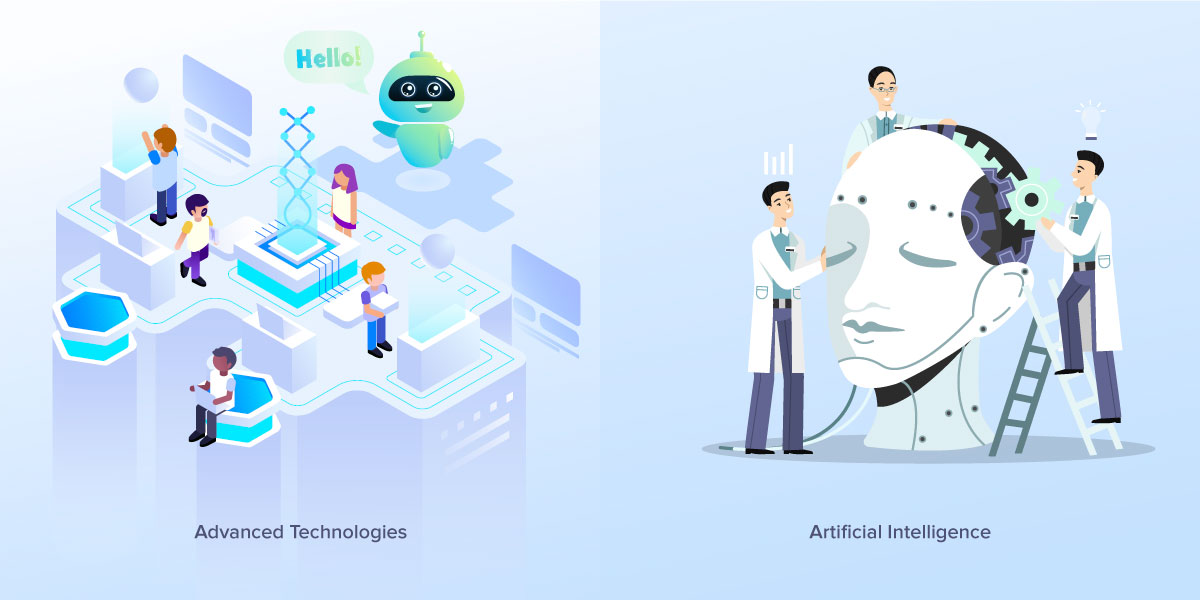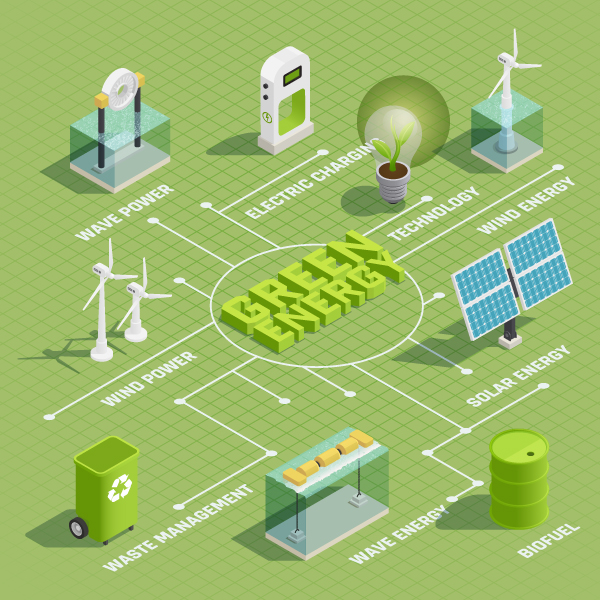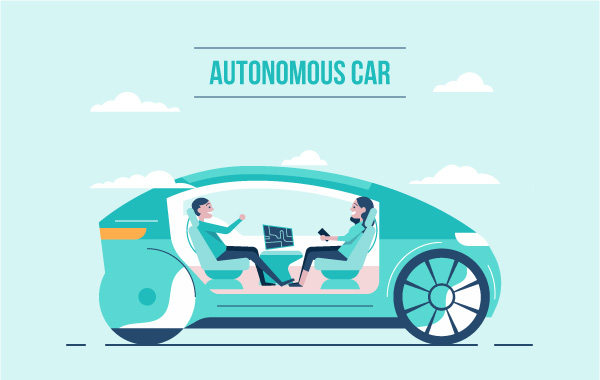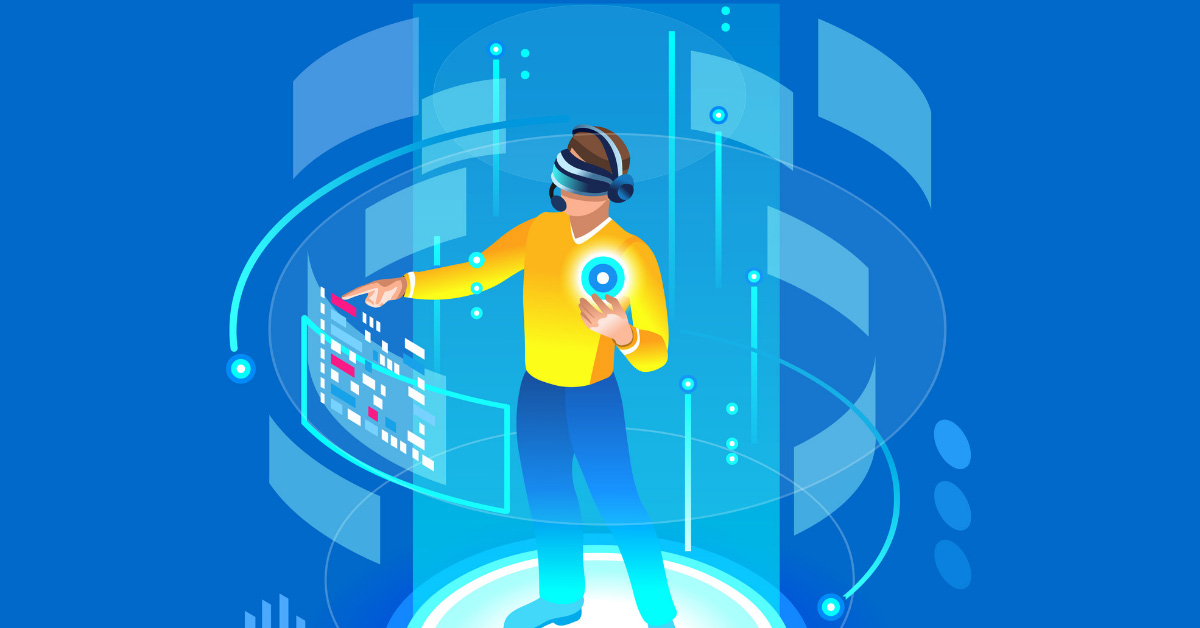Advanced Technologies which will emerge as a ruler in 2019

We live in an era of constant change and ideas are advancing our world faster than ever before. Some of them are here for a long time already, while others are reasonably new. Due to constant development and a broad range they affect, it becomes increasingly harder to follow everything that can transform our world, especially when some concepts are harder to grasp.
Every discovery is not only a technological leap, but it also shapes the business world, people, and can lead to crucial changes in the day-to-day lives. We believe that the change is for the best, but nothing is a safe bet.
So, let's check out some of the picks that will rule the day in 2019. Some may call them gimmicks, but we believe next year is their prime time to shine and bring profit.
Nothing new here. You can hardly find anyone who doesn't know this magical word, even if they have no clue how it works—and rightfully so, since to the casual audience, it still looks like a puzzle. Although numerous projects feature ready-to-use products using it, the blockchain itself is not used widely. Some doubts may deem it as "immature" and assume it will take years or even decades for the technology to come into effect. But the concept itself sounds too promising to ignore and makes organizations rethink their existing tech stack. Also, the media has been fairly loyal to this technology: many people have been brought here thanks to the constant coverage from major news outlets. If you want to learn more about the whole blockchain thing, our technology enthusiast, Anastasiia Bobeshko, wrote an article explaining how the blockchain affects different industries.

Not tied to the national currency, crisis-free anytime;
No middlemen;
Free from regulations;
Irreversible transactions may also be viewed as a sizeable plus.
Moreover, many of its key principles are beneficial and applicable outside the financial sector: it's only a matter of time when more and more enterprises start using this technology in their day-to-day activities. As mentioned above, when it comes to cryptocurrency, the government feels hesitant about the blockchain. However, some countries started to experiment with the technology; for example, Thailand used blockchain-powered election votes this year. A fraud-free platform is surely the way to go and will see great use in 2019.
Humanity is in a timeless pursuit to replace fossil fuels. Clean energy is the most suitable option as it's collected from renewable sources which are naturally replenished. As it's steadily rising in popularity and will soon be the main type of "fuel," we need to know how to store and distribute it the right way around. Another great sign is that solar batteries getting more affordable over time, resulting in the global energy storage market gaining momentum in the years to come as reported by Prescient & Strategic Intelligence, and 2019 is not an exception.

EcoStruxure is an example of a power distribution platform that provides an IoT-based smart grid, which drastically reduces the expenses and connects plants, IT products, machines, and power stations to enable self-circulating energy economy.
But Tesla is arguably the most prominent case of a company sticking to its eco-principles: their green cars are at the forefront of combatting emissions thanks to clean energy usage and compact charging stations. Its success in countries like Norway, according to Business Insider Nordic, is what spurs companies to stray from oil usage in favor of clean energy and improve upon making its distribution simple.

Self-Driving Cars and Drones
Don't be surprised to find yourself amid your favorite sci-fi movie or book soon (yes, we are that optimistic). Self-driving cars have the ability to function without your active involvement in the driving process and steadily become a part of our society. And the AI seems to be doing fine: despite the media highlighting its failures, the number of crashes is incredibly small. It's more about the mental factor: plane crashes are very painful to see, still, it's much safer to fly by plane than to use a car driven by a human. Experiments of integrating these cars started long ago, and now these technologies transfer more from control tests to our everyday life. As a result, this year's Web Summit PITCH competition honored two of these projects (Wayve and lvl5) among the medalists. The advancements in this area are fantastic: cheap cameras instead of sensors and the self-learning map can make you start thinking about stopping to drive by yourself.
Extended Reality
In essence, XR is an umbrella term that features all the real or virtual environments generated by a computer. It's more of a general notion that often includes the "X" variables of computer-altered reality.

Virtual Reality
It's both great for the cinema or gaming purposes, not to mention virtual tours. Pair this with the significant gadgets' price drop and you get a great tool for both marketing and entertainment.
Augmented Reality
AR is all about the usage of neat CG stuff. Although they can't respond to real-life objects, the interaction is achieved by projecting CG objects onto a static world. This is a choice for exploration purposes: visual art expos or architecture pros have already taken advantage of this convenient technique.
MR, on the other hand, is all about the CG and real-life interaction. This type of overlay is the best fit for education purposes: whether it's military training, factory instructions or kids interacting with a virtual animal, this type of product has great potential in teaching people how to act in certain situations without any risk via a pleasing virtual interface.
5G

The fifth generation of connectivity will soon become a dominant one. It should be much faster than the already-existing standards and bring other notable advantages:
Increased capacity — more devices and applications could use the Internet connection simultaneously;
Energy saving: it's destined to increase the battery life, being a far superior option in terms of consumption.
In spite of these challenges, LMT has already launched the first 5G station in Riga, Latvia and the other leading providers and telecommunication companies, such as Sprint, actively work to bring 5G to life.
Initially built to simulate physics, quantum computing (QC) has approached multiple areas where it could excel: cryptography, chemistry, and search algorithms. The idea is that the regular bit values (0 and 1) aren't fit for exploring advanced questions; meanwhile, QC gives an edge with qubits (that can have both 0 and 1 values at the same time).

IoT is all about 2 things: tons of connected devices and technologies. Cooperation with fields like Cloud Services, Big Data, and Artificial Intelligence is also what gets this ball rolling. Although it's far from covering the whole globe, the IoT has given us enough examples of its effectiveness and proved that we can rely on that.
At its core, IoT is a huge web of sensors that enables interaction between countless gadgets but still requires a bit of human presence to come into effect. We all love cool graphics from the fancy presentations, and IoT is the best pick for enjoying that: studies show the rapid growth of these gadgets being used all over the world, and you can only imagine their potential. 7 billion gadgets that will soon become 25bn are waiting to be filled with the software or ads, depending on their operators.
Artificial Intelligence

The best way to imagine AI is to recall the Terminator movies —a machine that is capable of doing human-like tasks and make its own decisions based on software's scripts, patterns, and logic. Deep learning, on the other hand, is what allows machines to learn and think just like a human being does. Machine learning is what helps AI-products vastly improve their performance and reduce the amount of hand-coding to enable analyzing and diagnosis features.
It requires massive pieces of data and large processing power;
Note
Skype: alex_39799

.jpg)

Comments
Post a Comment